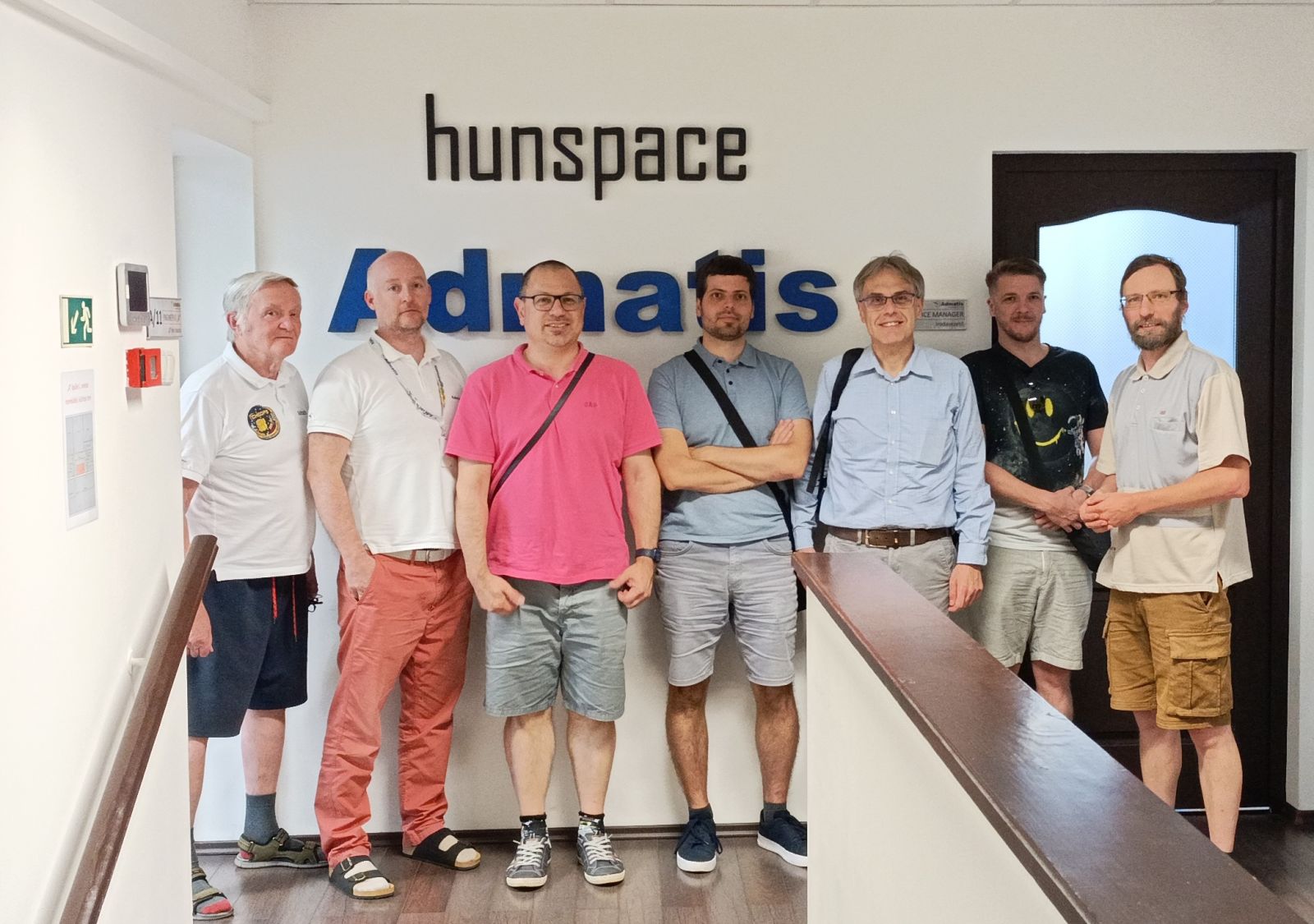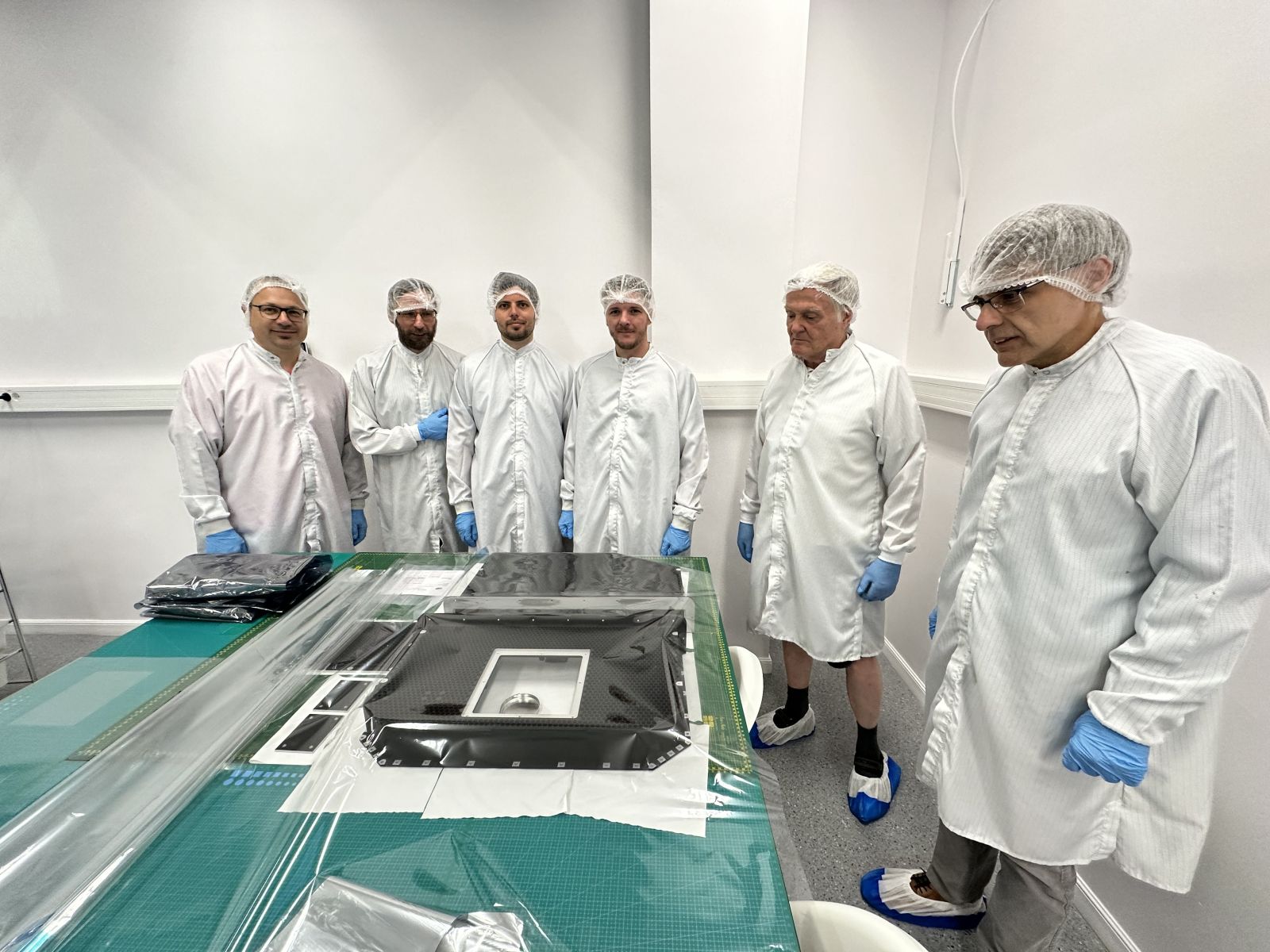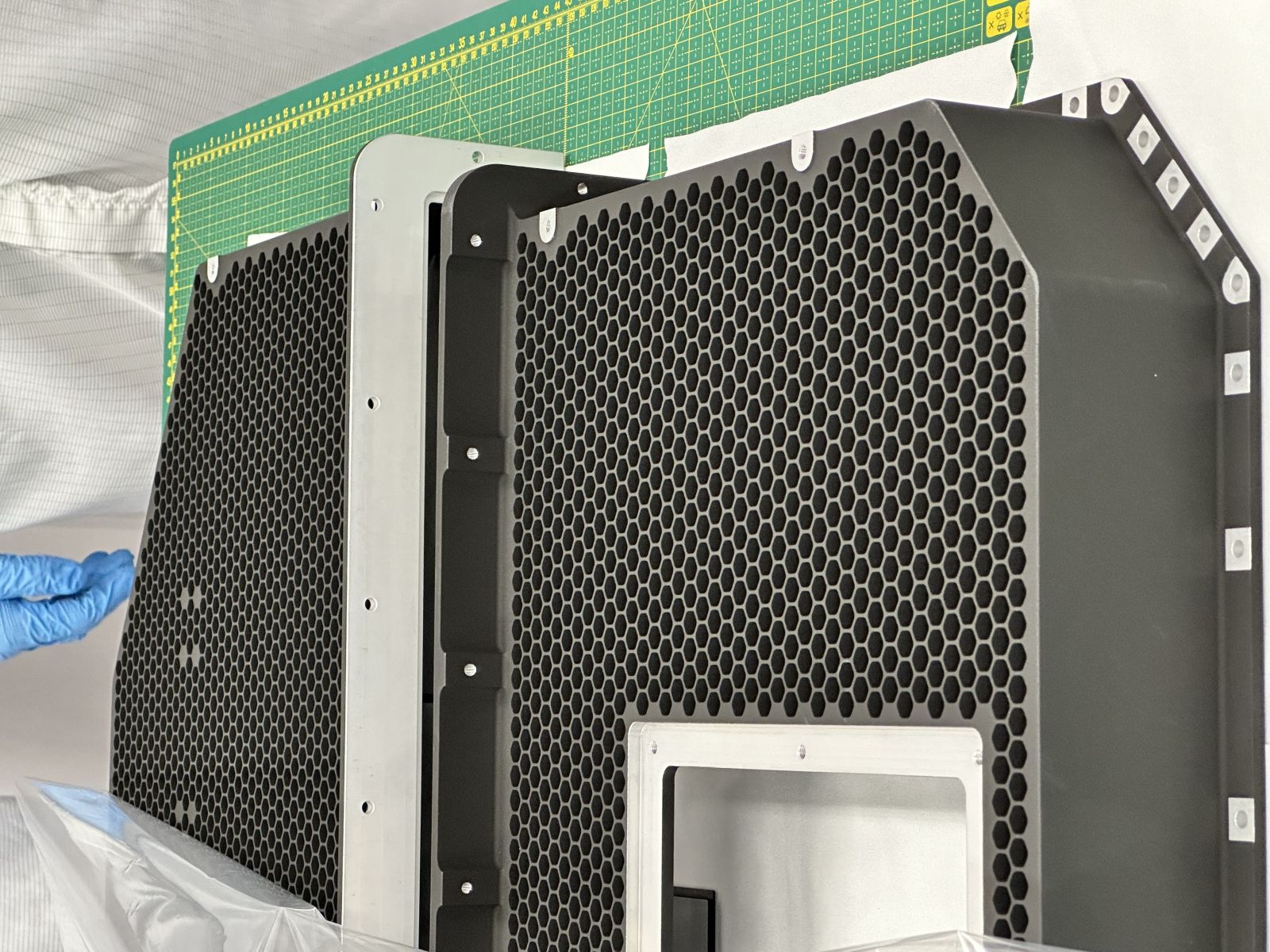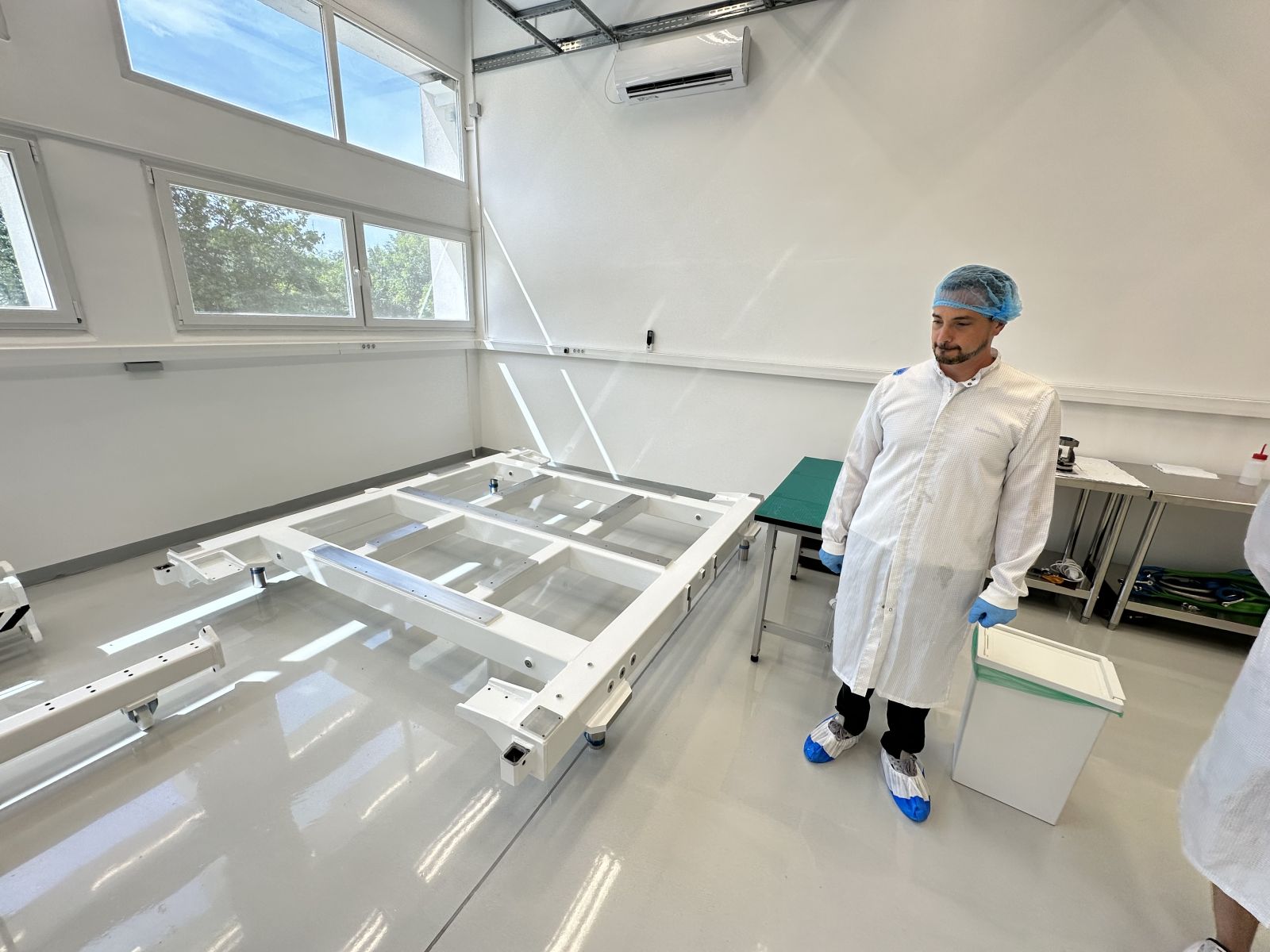On 8 July 2024, researchers from our Institute visited the space industry company, Admatis Ltd in Miskolc. Among many other space insturments, the company manufactures components - both flying and ground support - for the European Space Agency's Ariel space telescope designed to investigate exoplanetary atmospheres. Róbert Szabó, who is the Hungarian Co-PI of Ariel, was joined by Csaba Kiss (Deputy Scientific Director), Bálint Seli (PhD student) and Gyula M. Szabó (Director of the ELTE Gothard Astrophysical Observatory) - all of whom are involved in the preparatory work of Ariel. Our driver was Gergely Ország. On behalf of Admatis, the host committee was Pál Bárczy (founder), Tamás Bárczy (CEO), Péter Szirovicza and Béla Somosvári (engineers).

Employees of the HUN-REN CSFK Konkoly Observatory and the Admatis Ltd at the Admatis HQ.
Ariel is the European Space Agency's M4 mission to study the atmospheres of over 1000 exoplanets in depth using infrared spectroscopy. The space telescope, which will travel to the L2 Lagrange point of the Sun-Earth system, could be launched in 2029 at the earliest, together with the Comet Interceptor – designed to study a comet of interstellar origin at close range – on the same launch vehicle. In addition to the study of planetary atmospheres, Hungarian researchers are working on the activity of parent stars, the detection of exotic phenomena such as exo-moons and exorings, and the planning of complementary target observations (e.g. of young stars) for the Ariel mission.


Structural model of Ariel's cooling radiator. Note the honeycomb structure of the hardware component.
The Konkoly Observatory of the HUN-REN Research Centre for Astronomy and Earth Sciences has a long-standing relationship with Admatis Ltd, as the Miskolc engineers designed the passive cooling system for the Swiss-European Cheops exoplanet characterisation space telescope, in which the Institute's researchers were also involved and in the preparation of which they also participated jointly.
Admatis Ltd. has a European-wide recognized aerospace competence in the application and supply of thermal design, heat dissipation, heat resistant coatings, and mulit-layer insulations for space applications. They have designed and manufactured such devices for numerous satellites and their reference list is impressive. It is therefore not surprising that one of the most important Ariel hardware components manufactured in our country is the cooling radiator, which will ensure a stable temperature for the sensitive equipment. We could see (but not touch!) the structural model (SM) of the radiator, made using special processes, which can be later used as a spare part in case of need.
The equipment that will be manufactured for Ariel but remain on the ground includes a shipping container in which the space telescope will be transported by road across Europe, ensuring the proper temperature and vibration-free environment for the hundreds of millions of euros worth of satellite. It also provides clean-room conditions for the precious payload. The construction of the various mounting frames, positioning equipment and racks to be used for the assembly of the space telescope is also Hungarian contribution, coordinated by Admatis. The Hungarian hardware contribution to the Ariel space mission is supported by PRODEX.

In addition to the flying Ariel components, Admatis also manufactures ground transportation and support equipment for testing and transporting the spacecraft.
It was great to hear the story of the success of the Miskolc-based company, to tour the clean rooms where Ariel parts are made, to see the high-tech tools and processes being made, and to hear about future plans. Members of both the host company and the Konkoly delegation agreed to hold similar events in the future to get to know each other's work better.